
Musical Youth are a British reggae band formed in 1979 in Birmingham, England. They are best remembered for their 1982 single "Pass the Dutchie", which was a number 1 in multiple charts around the world. Their other hits include "Youth of Today", "Never Gonna Give You Up", and a collaboration with Donna Summer, "Unconditional Love". Musical Youth recorded two albums and earned a Grammy Award nomination before disbanding in 1985 after a series of personal problems. The band returned in 2001 as a duo.

Syreeta Wright, who recorded professionally under the mononym Syreeta, was an American singer-songwriter, best known for her music during the early 1970s through the early 1980s. Wright's career heights were songs in collaboration with her ex-husband Stevie Wonder and musical artist Billy Preston.

The Supremes A' Go-Go is the ninth studio album released by Motown singing group the Supremes. It was the first album by an all-female group to reach number-one on the Billboard 200 album charts in the United States.
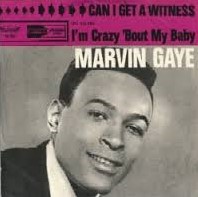
"Can I Get a Witness" is a song composed by Brian Holland, Lamont Dozier, and Eddie Holland and produced by Brian Holland and Lamont Dozier as a non-album single for American recording vocalist Marvin Gaye, who issued the record on Motown's Tamla imprint in September 1963.
The Originals, often called "Motown's best-kept secret", were a successful Motown R&B and soul group during the late 1960s and the 1970s, most notable for the hits "Baby I'm for Real", "The Bells", and the disco classic "Down to Love Town." Formed in 1966, the group originally consisted of baritone singer Freddie Gorman, tenor/falsetto Walter Gaines, and tenors C. P. Spencer and Hank Dixon. Ty Hunter replaced Spencer when he left to go solo in the early 1970s. They had all previously sung in other Detroit groups, Spencer having been an original member of the (Detroit) Spinners and Hunter having sung with the Supremes member Scherrie Payne in the group Glass House. Spencer, Gaines, Hunter, and Dixon were also members of the Voice Masters. As a member of the Holland–Dozier–Gorman writing-production team, Gorman was one of the co-writers of Motown's first number 1 pop hit "Please Mr. Postman", recorded by the Marvelettes. In 1964 the Beatles released their version and in 1975 the Carpenters took it to number 1 again. This was the second time in pop history that a song had reached number 1 twice as "The Twist" by Chubby Checker, reached number 1 in both 1960 and 1961. In 2006, "Please Mr. Postman" was inducted into the Songwriters Hall of Fame.
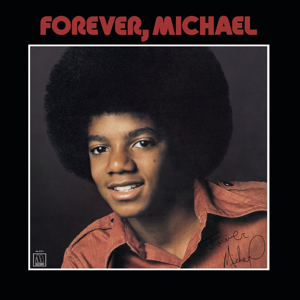
Forever, Michael is the fourth studio album by American singer Michael Jackson, released by Motown Records on January 16, 1975. The album is credited as having songs with funk and soul material. Eddie Holland, Brian Holland, Hal Davis, Freddie Perren, and Sam Brown III served as producers on Forever, Michael. It is the final album before Jackson's solo breakthrough with his next album, Off the Wall (1979).
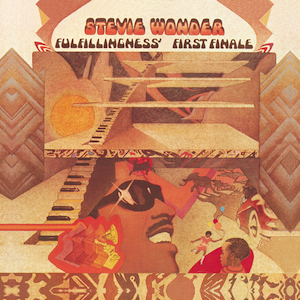
Fulfillingness' First Finale is the seventeenth studio album by American singer-songwriter Stevie Wonder, released on July 22, 1974 by Tamla, a subsidiary of Motown Records. It is the fourth of five albums from what is considered Wonder's "classic period".

Meet the Supremes is the debut studio album by The Supremes, released in late 1962 on Motown.

"Boogie On Reggae Woman" is a 1974 funk song by American Motown artist Stevie Wonder, released as the second single from his seventeenth studio album, Fulfillingness' First Finale, issued that same year. Despite the song's title, its style is firmly funk/R&B and neither boogie nor reggae. It continued Wonder's successful Top Ten streak on the pop charts, reaching number three and also spent two weeks at number one on the soul charts. Billboard ranked it as the No. 26 song for 1975. At the 17th Grammy Awards, Stevie Wonder won the Best R&B Vocal Performance, Male for this song.
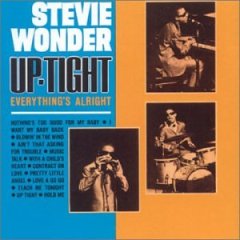
Up-Tight is a 1966 album by American singer Stevie Wonder, released by Motown on the Tamla label. It was his fifth studio release.

Down to Earth is the sixth studio album by American singer-songwriter Stevie Wonder, released on November 16, 1966 on the Tamla (Motown) label. The album was a departure from Wonder's earlier, teen pop-driven albums, and, along with its predecessor, Up-Tight, it re-established the sixteen-year-old Wonder, whose voice had recently changed, as a Motown hitmaker.

Dancing in the Street: The Songs of Motown II is the sixth studio album by Australian pop vocal group Human Nature and second Motown covers release. It was released on 14 October 2006.

The Youth of Today is the first album from the British Jamaican reggae band Musical Youth, released in 1982. The album includes the #1 UK hit "Pass the Dutchie" which also hit number 10 on the US Billboard Hot 100 chart.

Make It Happen is a 1967 album by Smokey Robinson & the Miracles. It featured ballads such as the hit singles "The Love I Saw in You Was Just a Mirage" and "More Love", as well as the up-tempo "The Tears of a Clown" co-written by Stevie Wonder and his producer Hank Cosby.

Dennis Michael Seaton is a British soul and R&B singer, songwriter, and record producer, best known as the frontman of the British reggae band Musical Youth.

Anthology, also known as Anthology: The Best of The Supremes, first released in May 1974, is a series of same or similarly titled compilation albums by The Supremes. Motown released revised versions in 1986, 1995 and 2001. In its initial version, a 35-track triple record collection of hits and rare material, the album charted at No. 24 on Billboard's "Black Albums" and No. 66 on "Pop Albums".

Get Ready is the seventh studio album by Australian pop vocal group Human Nature and third in their series Motown covers release. It was released on 17 November 2007.
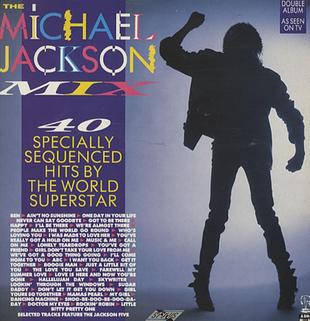
The Michael Jackson Mix is a compilation album by American singer and recording artist Michael Jackson, released in 1987. Available as a double LP, double cassette and double CD, the album contains 40 songs from Jackson's Motown career – solo and with The Jackson 5 – edited together in four separate megamixes: "Love Mix 1" and "Love Mix 2" on the first LP, cassette and CD, and "Dance Mix 1" and "Dance Mix 2" on the second LP, cassette and CD.
"She's Trouble", also known as "Trouble", is a song by Michael Jackson, recorded in 1981 and originally written for his Thriller LP. However, Jackson's original version was an outtake and therefore never released, either as a single or an album cut. Two versions of Jackson's demo leaked online, a rough vocal version and a final version in low quality. On November 18, 2022, Jackson's version was released on Thriller 40.

"Tell Me Why" is a song by Jamaican reggae singer John Holt, released as the B-side to his UK top-ten single "Help Me Make It Through the Night" in 1974. It was covered by Musical Youth in 1983, becoming a top-40 hit.

















